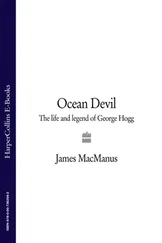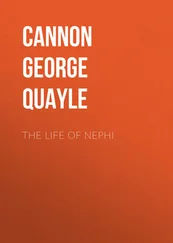George Muller - The Life of Trust
Здесь есть возможность читать онлайн «George Muller - The Life of Trust» — ознакомительный отрывок электронной книги совершенно бесплатно, а после прочтения отрывка купить полную версию. В некоторых случаях можно слушать аудио, скачать через торрент в формате fb2 и присутствует краткое содержание. Жанр: unrecognised, на английском языке. Описание произведения, (предисловие) а так же отзывы посетителей доступны на портале библиотеки ЛибКат.
- Название:The Life of Trust
- Автор:
- Жанр:
- Год:неизвестен
- ISBN:нет данных
- Рейтинг книги:4 / 5. Голосов: 1
-
Избранное:Добавить в избранное
- Отзывы:
-
Ваша оценка:
- 80
- 1
- 2
- 3
- 4
- 5
The Life of Trust: краткое содержание, описание и аннотация
Предлагаем к чтению аннотацию, описание, краткое содержание или предисловие (зависит от того, что написал сам автор книги «The Life of Trust»). Если вы не нашли необходимую информацию о книге — напишите в комментариях, мы постараемся отыскать её.
The Life of Trust — читать онлайн ознакомительный отрывок
Ниже представлен текст книги, разбитый по страницам. Система сохранения места последней прочитанной страницы, позволяет с удобством читать онлайн бесплатно книгу «The Life of Trust», без необходимости каждый раз заново искать на чём Вы остановились. Поставьте закладку, и сможете в любой момент перейти на страницу, на которой закончили чтение.
Интервал:
Закладка:
“The effectual, fervent prayer of a righteous man availeth much ;” [8]that is, it is a real power, a positive energy. The apostle illustrates what he means by availing prayer by the example of Elias, a man subject to like passions as we are: “He prayed earnestly that it might not rain, and it rained not on the earth by the space of three years and six months; and he prayed again, and the heavens gave rain, and the earth brought forth her fruit.” [9]
The conditions on which prayer will be heard are in various places specified, but particularly in John xv. 7: “If ye abide in me and my words abide in you, ye shall ask what ye will , and it shall be done unto you.” That is, if I understand the passage, prevalence in prayer is conditioned by the conformity of our souls to the will of God; “if ye abide in me and my words abide in you.” On this condition, and on this only, may we ask what we will, with the assurance that it will be done unto us. Faith, in its most simple meaning, is that temper of the mind in the creature which responds to every revealed perfection of the Creator. Just according to the degree in which this correspondence exists, is the promise made that we shall have whatsoever we ask.
It is evident, from the eleventh of Hebrews, that the views of the Apostle Paul concerning faith were entirely in harmony with the passages recited above. He reviews the lives of the most eminent saints, for the express purpose of showing that the impressive events in their history, whether physical or moral, were controlled entirely by faith. He sums up the whole in this remarkable language:—
“And what shall I say more? For the time would fail me to tell of those who through faith subdued kingdoms, wrought righteousness, obtained promises, stopped the mouths of lions, quenched the violence of fire, escaped the edge of the sword, out of weakness were made strong, waxed valiant in fight, turned to flight the armies of the aliens; women received their dead raised to life again; and others were tortured, not accepting deliverance, that they might obtain a better resurrection.” We are, I think, taught by this passage that the apostle believed faith to be a power capable of transcending and modifying every other agency, by which changes became possible which to every other known power were impossible. We see that in this catalogue of the victories of faith he includes the subjection of almost every form of what we call natural laws. The whole passage seems an illustration of the meaning of our Lord, when he says, “If ye have faith as a grain of mustard seed, ye shall say to this sycamine tree, Be thou removed and planted in the midst of the sea, and it shall obey you.”
It seems then apparent that the doctrine of the peculiar and wonderful power of the prayer of faith is as clearly revealed in the Scriptures as any other doctrine. It would seem evident, at any rate, from the passages just quoted, that the Apostle Paul understood the teachings of our Saviour to mean what they say. From the general tenor of the Scriptures I think we may learn two important truths: First, that there is a certain state of mind in a devout soul to which God has promised all that it asks, subject, however, as to the manner of the answer, to the dictates of his infinite wisdom and goodness; and, second, that in granting such petitions he does not always limit his action within the ordinary or acknowledged laws of matter or of mind. I do not perceive how we can interpret the passages above cited, as well as many others, without giving them a meaning at least as extensive as this.
Why is it, then, that this whole range of revealed truth has so generally been looked upon as an unknown and unexplored region? Why should we limit either the goodness or the power of God by our own knowledge of what we call the laws of nature? Why should we not admit that “there are more things in heaven and earth than are dreamed of in our philosophy”? In a universe governed by moral law, why should not moral laws take precedence of all others? Why should we deny that there is a power in prayer to which we have not commonly attained? We are straitened in ourselves, and suppose that we are straitened in God. We interpret the gracious promises of our most loving Father in heaven by the rule of our own imperfect and unbelieving piety. We ask for light from without, while the light can only come from a more elevated piety within. We ask for examples of the effects of faith at the present day, corresponding to those spoken of in the sacred Scriptures. Thoughtful men acknowledge that there must be a meaning in these promises, which they have not yet understood, and they see plainly that the kingdom of God can never come with power until this prevalence in prayer shall have become a matter of universal attainment; and yet they dare hardly believe that God is as good as he has revealed himself to be.
There have, nevertheless, from time to time, occurred, what plainly appear to be, remarkable instances of answers to prayer. Many of them have faded from recollection, with the generation in which they occurred; those which are remembered, however, seem to teach us that God is a living God now as truly as in times past. The history of persecutions is always filled with remarkable answers to prayer. The rescue of Peter from the power of the Sanhedrim in one case, and from the power of Herod in another, has been a thousand times repeated in the history of the church of Christ. The answer to prayer for divine direction as to the time and manner of performing some Christian service, to which an individual has felt himself specially called, has frequently been very remarkable. The biographies of the early and of many of the later Friends are replete with such instances. Any one who will read the edifying memoirs of George Fox, John Woolman, William Allen, and Stephen Grellet, will find what I have alluded to abundantly exemplified. The well-authenticated accounts of the late revivals in this country and in Ireland teach us that most remarkable instances of answers to prayer were of almost daily occurrence. In the last century a single instance deserves particular remembrance; it was the founding of Franke’s Orphan House at Halle. It seemed to him to be a Christian duty to attempt something for the relief of orphans, and he commenced the undertaking. From time to time, as the number of applicants increased, the means for their support was provided, in answer, as he firmly believed, to fervent and unceasing prayer. Thus an extensive establishment was reared, which has continued to the present day, providing education and support for thousands of the poor and destitute, and it has been for a century and a half one of the most honored of the charitable institutions of the continent of Europe.
The most remarkable instance of the efficacy of prayer with which I am acquainted, is that recorded in the following pages. It seems, in fact, to be a practical illustration of the meaning of those passages of Scripture which I have already recited. A young German Christian, friendless and unknown, is conscious of what he believes to be a call from the Lord to attempt something for the benefit of the poor vagabond children of Bristol. He is at this time preaching the gospel to a small company of believers, from whom, at his own suggestion, he receives no salary, being supported day by day by the voluntary offerings of his brethren. Without the promise of aid from any being but God, he commences his work. In answer to prayer, funds are received as they are needed, and the attempt succeeds beyond his expectation. After a few years he is led to believe that God has called him to establish a house for the maintenance and education of orphans. He was impelled to this effort, not only from motives of benevolence, but from a desire to convince men that God was a living God, as ready now as ever to answer prayer; and that, in the discharge of any duty to which he calls us, we may implicitly rely upon his all-sufficient aid in every emergency.
Читать дальшеИнтервал:
Закладка:
Похожие книги на «The Life of Trust»
Представляем Вашему вниманию похожие книги на «The Life of Trust» списком для выбора. Мы отобрали схожую по названию и смыслу литературу в надежде предоставить читателям больше вариантов отыскать новые, интересные, ещё непрочитанные произведения.
Обсуждение, отзывы о книге «The Life of Trust» и просто собственные мнения читателей. Оставьте ваши комментарии, напишите, что Вы думаете о произведении, его смысле или главных героях. Укажите что конкретно понравилось, а что нет, и почему Вы так считаете.












